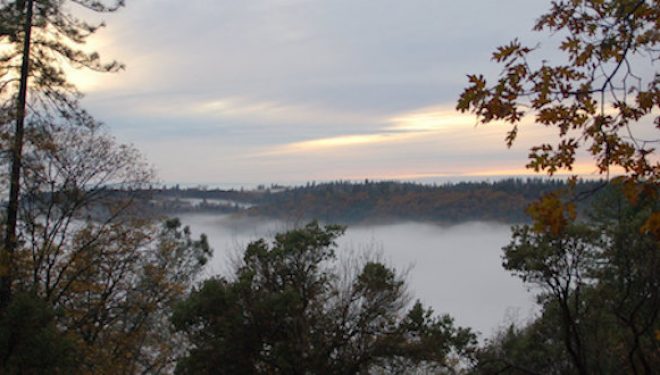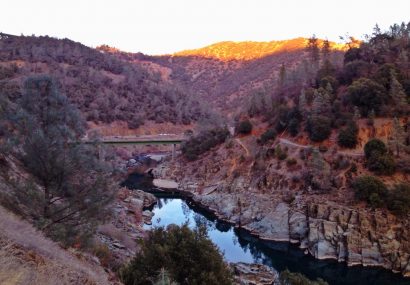
By Jamie Morin
U.S. District Court Judge, Barbara Rothstein has dismissed claims filed by the Sauk-Suiattle Indian Tribe seeking relief from continued operation of a Federal Energy Regulatory Commission (FERC) licensed hydroelectric project on the basis of laws in effect prior to the issuance of the FERC license. [Sauk-Suiattle Indian Tribe v City of Seattle and Seattle City Light, ___F.Supp.4th___, Case No. 2:21-cv-1014 (W.D. Wash. Dec. 2, 2021).]
Background
The Sauk-Suiattle Indian Tribe (Tribe) is a federally recognized Indian Tribe with territorial treaty claims to the Skagit River Basin. Under the Boldt Decree, the Sauk-Suiattle “usual and accustomed” fishing areas are tributary to the Skagit River. US v Washington, 384 F.Supp. 312, 376 (W.D. Wash. 1974). Which means, fish migrating to Sauk-Suiattle Usual and Accustomed fishing areas must travel up the Skagit River, giving the Sauk-Suiattle Indian Tribe a keen interest in the functioning hydrology of the Skagit River.
The City of Seattle (City)j owns and operates a series of 3 dams comprising the Skagit River Hydroelectric Project. The lowest of these three dams on the Skagit River is the Gorge Dam completed in the 1920s, which “as constructed ‘blocks fish passage within the Skagit River from the area below to the area above suck dam.” Order @ p.2. Despite the blockage, the Skagit Project received an operating license from the Federal Power Commission, predecessor to the Federal Energy Regulatory Commission (FERC), in 1927. The original 50-year license was renewed in 1995 after an extended relicensing review and settlement process, of which the Sauk-Suiattle Indian Tribe was a participant. The 1995 renewal is due to expire in 2025. Negotiations are currently underway to address permit terms in the re-licensure of the Skagit Project when this license expires
The Lawsuit
The Sauk-Suiattle Indian Tribe filed an action against the City of Seattle and its utility department, Seattle City Light, in State (Skagit County) Superior Court seeking declaratory and prospective injunctive relief under the U.S. and Washington State Constitutions, Territorial Acts of Congress, the Magna Carta, and related common laws, among others, that the City owned dam structure unlawfully blocks the passage of migrating fish notwithstanding its operation under its FERC license. The City of Seattle had the action removed to the U.S. District Court on the grounds of original jurisdiction and subsequently filed a Motion to Dismiss. The U.S. District Court denied the Sauk-Suiattle’s Motion for Remand (November 9, 2021). The Court shortly thereafter granted the City of Seattle’s Motion to Dismiss (December 2, 2021).
Whether FERC licensed hydroelectric projects are subject to existing state and federal laws prohibiting the blockage of stream.
The Federal Power Act, 16 USC 791a et seq, provides FERC “broad and exclusive jurisdiction” to license hydroelectric power facilities, which includes “constructing, operating, and maintain dams, water conduits, reservoirs, power houses, transmission lines, or other project works necessary or convenient … for the development, transmission, and utilization of power across, along, from, or in any of the streams or other bodies of water over which Congress has jurisdiction.” 16 USC. 797(e).
The Sauk-Suiattle assertions attempt to step back into the land before FERC jurisdiction, not to question the validity of the licensure, but argue that the construction and operation of the Gorge dam Is illegal as a matter of law notwithstanding the FERC license.
In support of pre-licensure legality, the Sauk-Suiattle argue that prohibitions against complete stream blockages found in Territorial acts, as incorporated into the State Constitution and the state’s Enabling Act which was in place when the dam was originally constructed and licensed survive despite Congressional action to repeal certain territorial acts through adoption into state law prior to subsequently repeal. The Sauk-Suiattle further argue that violates the common law in that it unreasonably interferes with the Tribes enjoyment of its property constituting a nuisance.
The U.S. District Court’s Decision
The Court’s ruling seems to sidestes the multiple Sauk-Suiattle arguments. Rather, the court implicitly found instead that FERC regulations prevail, notwithstanding whether there may be legal issues related to the construction and operation. Without reaching the question of whether it can legally exist in its current form, the Project has a license from FERC to operate in the manner that it operates—fish migration block and all. The U.S. Courts of Appeal have exclusive jurisdiction to review the operations of hydroelectric projects under its jurisdiction. Without jurisdiction to review the claim, the District Court ruled instead to dismiss.
Conclusion and Implications
We expect to see this case appealed to the Ninth Circuit Court of Appeals.
In a separate action pending in King County Superior Court, the Sauk-Suiattle Indian Tribe has filed an action against the City of Seattle for violations of the Consumer Protection Act, seeking Certification as a Class Action. This Tribe is alleging harm due to “unfair and deceptive practices associated with claims of superlative environmental responsibility” in connection with its Skagit Project and environmental performance. Case 21-2-12361-5 SEA. A notice for hearing on the City’s motion to dismiss has been set for January 14, 2022.




